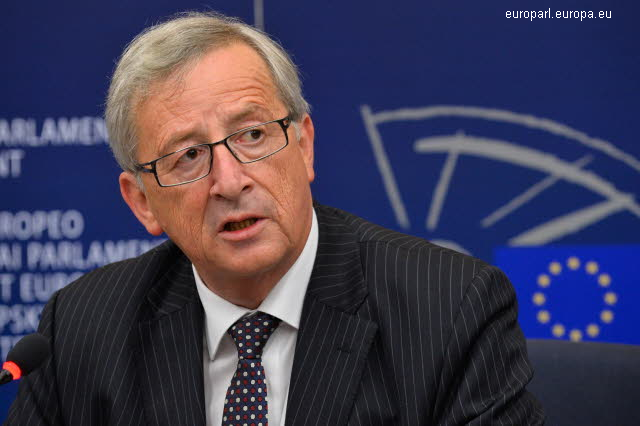The New European Commission
Jean-Claude Juncker prepares his new EC team for hard task lying ahead.

Corina Cristea, 19.09.2014, 13:13
The Prime Minister of Luxembourg for almost 19 years, until 2013, Jean-Claude Juncker witnessed the deep transformation that the European Union went through, the failure of the constitutional treaty of 2005, the birth of the Euro currency and, later, the debt crisis that threatened the common currency. As head of the Eurogroup, he contributed to saving the single currency. Now, Jean-Claude Juncker, described by news agencies as a veteran of European policy and a master in the art of compromise, is the new president of the European Commission. He is a Christian — Social politician skilled at striking alliances with the Socialists, and showing a keen sense of negotiation and balance.
The membership of his new team in Brussels is yet another proof of his capacity to find solutions to the liking of all the parties involved. He managed to draw up a list of commissioners with a fairly satisfactory representation of small and large countries, western and eastern countries, and men and women.
Right after announcing the names of the future European Commissioners, Jean–Claude Juncker said, “With the beginning of the new Commission, we have an exceptional opportunity, but also an obligation, to make a fresh start and get down to work to address the very difficult geo-political situation; to strengthen economic recovery and to build a united Europe that delivers jobs and growth for its citizens.”
Once the list is made public, the European Parliament is preparing tough hearings for the members of the new European Commission, several MEPs have warned. Here is now our correspondent to Brussels, Cerasela Radulescu, with more:
Cerasela Radulescu: “Out of the 28 commissioners, 15 are members of right and centre-right parties, 8 are socialists, and 5 liberals. Jean-Claude Juncker has managed to make up a solid team, and assigned the portfolios depending on the personality of each candidate, not on the country they represent. Juncker’s strategy focused on effectiveness and the will to move forward on crucial issues, regarding the economy, jobs and social solidarity, a political program based on economic growth and the creation of new jobs, as requested by both the socialists and the liberals, which are the main groups in the European Parliament, alongside European People’s Party.”
According to a France Presse report, during his term, Jean-Claude Juncker will have to deal with five major files — economic growth and fighting unemployment, the Ukrainian crisis and international tension, the relations with Britain, the trade agreement currently under negotiation with the US as well as the climate and energy issues.
Out of all the five areas, fighting unemployment and resuming economic growth will be the priority of the new EU executive, with Jean-Claude Juncker having already pledged an investment plan of 300 billion euros. The Juncker Commission will have to come up with a solution to provide economic growth without compromising on the reforms or on the measures aimed at curbing public deficits. Countries like France and Italy stand in favour of relaxing budget austerity measures, as opposed to countries like Germany, which are promoting budget consolidation.
As far as foreign policy is concerned, the conflict in Ukraine and the crisis affecting the relations with Russia, the threat posed by Islamic fighters in Iraq and Syria and its effects on Europe, the permanent tensions in the Middle East are topical issues to be tackled by the new Commission. And so are fighting illegal migration from North Africa and the Middle East, and the relation with the United States, particularly the Transatlantic Free Trade Agreement.
As regards the EU’s enlargement, the situation is very clear. In the next five years there is no prospect for a candidate country to complete accession negotiations. Therefore, the main candidates, Serbia and Montenegro, will have to wait. As regards the portfolio assigned to the Romanian MEP Corina Cretu, Regional Policy, the Union’s policies in this field are investment policies, and for that reason the budget allocated for the next few years is generous, 350 billion Euros. The emphasis will be on a key area in Juncker’s political platform, namely creating jobs, competitiveness, economic growth, better quality of life, and sustainable development.
The new community executive will take office on November 1st.






























